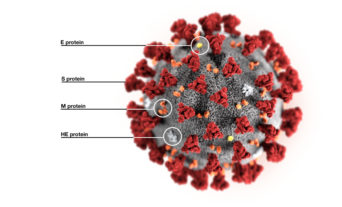Malaysia was affected early, even prior to the outbreak being declared a pandemic. The first few cases were reported in January 2020 with a surge in the following months. Over 800,000 blood units are collected annually for a population of 32 million, with about 60% of the blood donations occurring at mobile collection sites. The ensuing outbreak resulted in blood collections dipping by 40% mainly due to cancellation of mobile blood collections.
Blood donors were apprehensive to come forward to donate blood in fear of exposure to COVID-19 and the penalty of travelling during the MCO period.
An initial sense of trepidation among the public led to cancellation of all planned mobile sessions by blood donor organisers and a reduction in walk-in donors. The implementation of ‘lock-down’, called the Movement Control Order (MCO) in Malaysia, on 18 March 2020 further complicated donor recruitment activities. Blood donors were apprehensive to come forward to donate blood in fear of exposure to COVID-19 and the penalty of travelling during the MCO period. An official announcement had to be made by the Minister of Defence on 27 April 2020 to allay their fears and to reassure them that blood donors were allowed to travel during the MCO for blood donation.
Reorganisation of mobile units
In such uncharted waters, the transfusion services, as with other medical services, needed to reorganise and reinvent themselves to align with local societal norms. Social – or more correctly, physical – distancing has been the buzzword, with guidance for the maintenance of at least one meter distance between individuals in Malaysia to prevent droplet spreads.
Several factors needed to be addressed during mobile blood collections to adhere to new requirements. Space needed to be expanded. A space of 60 m2 would have been considered adequate for a six-bedded mobile session but now needed to be expanded to 90 m2 to accommodate social distancing rules. Adequate ventilation and air flow directions needed to be addressed. To ensure optimal crowd control at donation sites, donation hours, target number of donors and process flows at mobile sites were carefully planned.
Communication and new processes
Communication is crucial during periods of uncertainty and anxiety. Information needs to be provided to blood drive organisers and blood donors on various precautionary measures implemented by the transfusion services to allay their fears and encourage them to continue to donate blood. Prior appointments for donations were encouraged to prevent overcrowding. Furthermore, travel authorisation letters were provided electronically to allow potential donors to travel during the MCO period.
Other process changes included placing infographics at strategic points such as at the entrance to advise donors on COVID-19 and blood donation. The donation area was demarcated with barricade tape or queue stands to ensure a one-way flow of traffic and process. Donning of surgical face masks was enforced for all healthcare workers and blood donors, who were provided with complimentary masks if they did not have their own supply. Strict hand hygiene was likewise enforced among healthcare workers. Hand sanitisers were provided at entry and several points in the process flow for blood donors and staff.
Social distancing is now the new normal, even in blood collection.
Screening counters were established to check donors’ body temperatures via non-contact infrared thermometer. Blood donors now had to complete an additional pre-donation questionnaire requiring information on any potential risk exposure. Restrictions were imposed, with no accompanying person allowed into the donation area, and a one-donor-only and donate-then-leave policy was implemented. After donation, blood donors were reminded to notify the transfusion service if they became unwell or if they were notified as a close contact person of a COVID-19 patient.
Social distancing is now the new normal, even in blood collection. We will work hand in hand with our blood donors to provide a sustainable blood supply for our patients in the midst of the COVID-19 pandemic.



